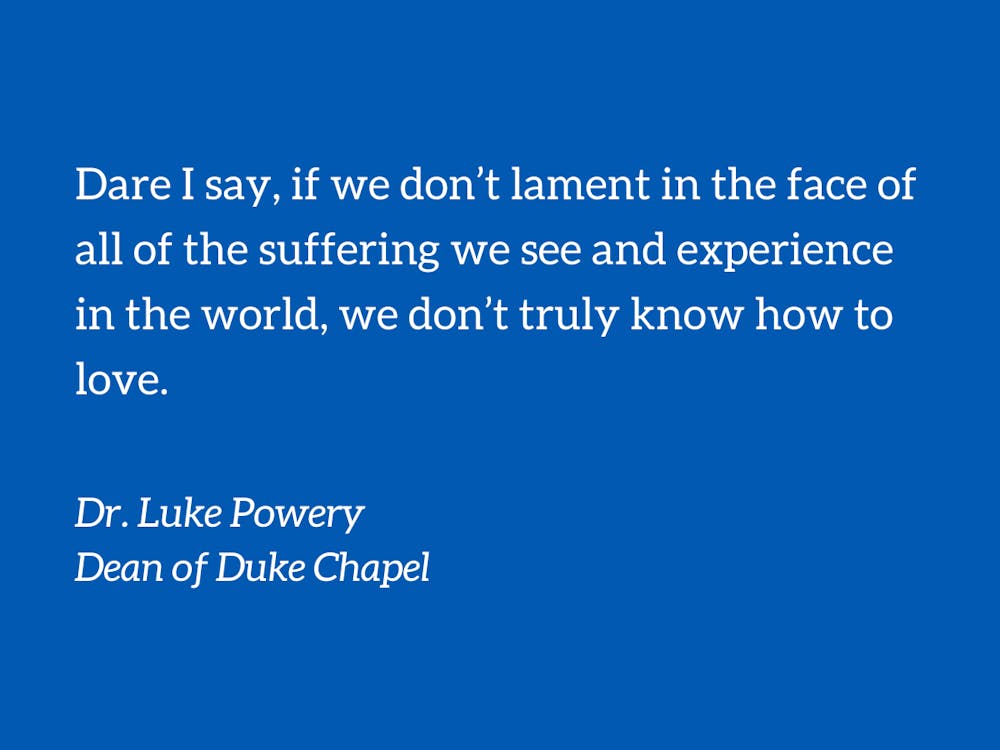My first book, "Spirit Speech: Lament and Celebration in Preaching," was an attempt to fill what I saw as a gap in the scholarly literature in the field of homiletics, which is the academic study and teaching of the practice of preaching. At the time, much of the literature on Black preaching in particular usually only highlighted "celebration" in preaching, where there is often a musical intoned climax near the end of the sermon in antiphony with the congregation. Celebration is historically rooted within the "invisible institution" of Black slave religion, through which enslaved preachers celebrated even while being devastated. Musical preaching, like the musical singing of the spirituals, was a means to resist and overcome the slave master’s oppression.
In my book, I did not try to ignore celebration or mute its importance, but I wanted to acknowledge and explore another voice in preaching, the voice of lament. It has always been there in Black preaching, though it wasn’t emphasized in the literature. I wanted to lift it up on par with celebration because lament can spur us to tell the truth. Biblical scholar Walter Brueggemann says lament declares "life is not right," whatever the specifics may be. Lament is honest speech and for people of faith, it is faithful speech. In the book of Psalms, there are many laments that ask questions and even get angry with God — Why? How? I take my cues from the Psalms.
For the times in which we live, lament is on-time speech. If we remember all of the lives taken by international wars and natural disasters, it is time to lament. Lament for all the human hatred and injustice and lost lives, including innocent children. Lament how hatred seems to be a hero these days abroad or even at home. Lament against political power plays and backdoor deals that disregard human lives. Lament for how quickly human life can disappear by torrential rains and mudslides. Lament that "all flesh is grass" (Isaiah 40).
Sometimes all we can do is lament. We don’t have to have all of the strategies for salvation or to have everything figured out. Sometimes all we can do is sit down on our bed and cry. Sometimes our only response is tears as our breakfast, lunch and dinner. And it’s okay because expressions of lament are human; they are nothing to be ashamed of.
In fact, lament is love. Philosopher Nicholas Wolterstorff wrote a short book, "Lament for a Son," when his young son tragically died in an accident. I read the book almost 30 years ago for the first time but one of his sentences still strikes my heart: "Every lament is a love song." Wolterstorff lamented because he loved his precious son. You lament, not because you hate, but because you love and imagine a different world.
In the Bible, when Jesus discovers that his close friend Lazarus is dead, he wept at his tomb and onlookers said, “See how he loved him!” (John 11). We still love those who are no longer with us on earth and so we weep. We care so deeply that we weep for what could have been or should have been. Dare I say, if we don’t lament in the face of all of the suffering we see and experience in the world, we don’t truly know how to love.
The theologian Howard Thurman in his book "Disciplines of the Spirit" wrote, "Suffering stalks man, never losing the scent, and soon or late seizes upon him to wreak its devastation." No one is immune from suffering or death. How you respond to devastation is critical. I urge you in these days to love lament because it can be how you learn to love more honestly, deeply and spiritually.
The Rev. Dr. Luke A. Powery is Dean of Duke University Chapel. His column runs on alternate Mondays.
Get The Chronicle straight to your inbox
Sign up for our weekly newsletter. Cancel at any time.

